Share

Latest episode
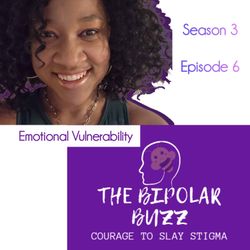
6. Emotional Vulnerability
04:25||Season 3, Ep. 6In this episode, Lai dives into two perspectives of emotional vulnerability. Is it a weakness or a strength? Let's talk about it.
More episodes
View all episodes
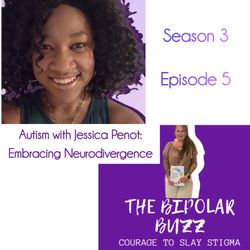
5. Autism with Jessica Penot: Embracing Neurodivergence
35:10||Season 3, Ep. 5In this episode, Jessica joins us to talk about her journey with autism both personally and professionally. She challenges us to think about autism as a neurodivergence instead of as a disorder. What would society look like if, instead of trying to fit people with autism into a neurotypical box, we allowed them to exist as they are and changed our own way of thinking about people on the spectrum? Thank you, Jessica, for sharing your knowledge and experiences!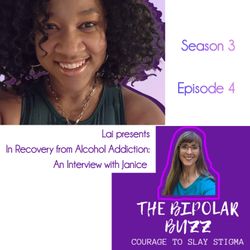
4. In Recovery from Alcohol Addiction: An Interview with Janice
55:20||Season 3, Ep. 4In this episode, Janice opens up about her struggle with alcohol addiction. She shares her experience with what she calls a family disease, discusses when and why she decided to seek help, and describes what recovery has been like for her. As someone who has lived this and who is also a social worker, Janice offers a unique perspective on healing, speaking up, and breaking the stigma surrounding addiction. Thank you, Janice, for sharing your story.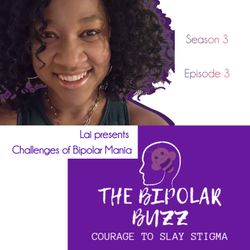
3. Challenges of Bipolar Mania
03:22||Season 3, Ep. 3Mania isn't always the "high" it appears to be. There are challenges, too. In this episode, Lai aims to educate her listeners on how mania can explain uncharacteristic behaviors.
2. Bipolar Mania: What's Good?
05:32||Season 3, Ep. 2What comes to mind when you hear "bipolar mania?" Good, bad, both? In this episode, Lai discusses what's good about bipolar mania by exploring her personal experiences of mania in the context of the DSM-5.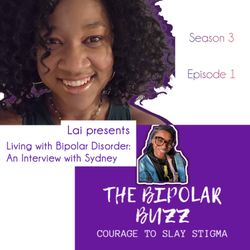
1. Living with Bipolar Disorder: An Interview with Sydney
29:58||Season 3, Ep. 1Lai sits down with Sydney for a candid conversation about living with bipolar disorder - the challenges, the strength, and the courage to slay stigma. Don't miss this powerful premiere.
5. Dating with a Mental Health Diagnosis
15:08||Season 2, Ep. 5In this episode, I share my thoughts on disclosing a mental health diagnosis to someone you're dating. While it is scary to share something like this with someone you're interested in, it is something to at least consider if you're planning to make your relationship serious. For me personally, bipolar disorder is a significant part of my life - to the point that my partner not knowing my diagnosis could be dangerous and result in an unwanted outcome. If you're on the dating scene or considering it and need some advice about how to disclose your diagnosis, take a listen to this episode.Here is the blog post my husband wrote on dating someone with bipolar disorder if you'd like to read it: https://thebipolarbuzz.com/dating-someone-with-bipolar-disorder-from-a-non-bipolar-perspective/